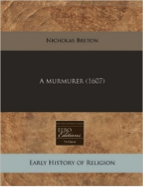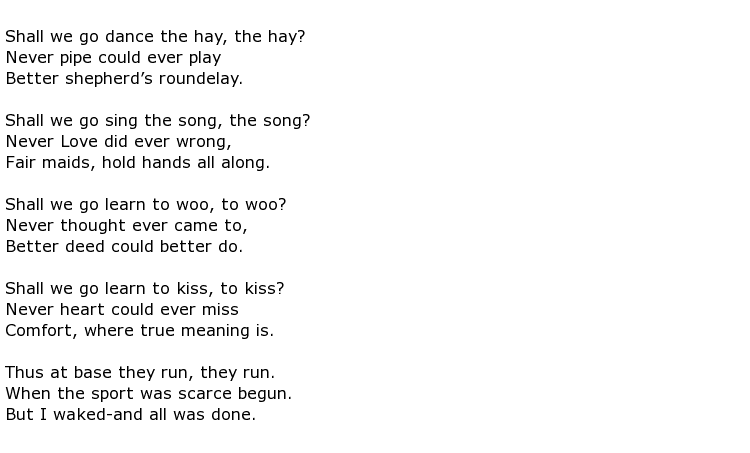 Nicholas Breton was an English poet and novelist whose work mainly centred on pastoral, religious and satirical themes. He originated from the small parish of Layer Breton in Essex, hence his name, but his surname has sometimes been written down as Britton or Brittaine.
Nicholas Breton was an English poet and novelist whose work mainly centred on pastoral, religious and satirical themes. He originated from the small parish of Layer Breton in Essex, hence his name, but his surname has sometimes been written down as Britton or Brittaine.
He was born sometime during the year 1545 into a very wealthy family, probably living in the “Capitall Mansion House” in the London parish of St Giles without Cripplegate. His father, William Breton, had made his fortune as a London merchant but he died when Nicholas was 14. His mother remarried, this time to a poet, and it is perhaps here that Nicholas took his inspiration to become a poet himself.
There are no records of where he was educated although one cleric noted that he was “once of Oriel College”, in Oxford. It is also mentioned that he spent time in Antwerp as well, furthering his education. He left it relatively late in life to get married but this came about in 1593 and he and Ann Sutton raised a family together. Breton’s work came to the attention of Mary, Countess of Pembroke, and she became his patron for a time, at least up to the year 1601. It appears that he did not have an easy life and there is some autobiographical evidence of this in a letter that was published in A Poste with a Packet of Mad Letters in 1603. Here is a short extract from it, a sorry tale of grief and woes:

Breton was popular amongst other writers during his lifetime although his work did not retain much in the way of popularity in the generations that followed his. Some critics have said that his religiously themed poems are

It is sometimes difficult to decide which faith he followed; on the one hand he must have been a Roman Catholic, as he often refers to Mary Magdalene, but on the other he displays distinctive tendencies towards the Anglican faith.
He wrote light and witty songs and poems, many of which had joyful, sunny, pastoral themes. Here is one of his pieces, a poem called Country Song:

One of his best known collections of pastoral work was published in 1604 and called Passionate Shepheard. You can almost feel the sunshine and smell the clean country air as you read the poems within. His last work was Fantastickes, effectively a calendar of country life written in prose form. He takes the reader through the year, month by month, describing the Christian festivals in turn and giving a keen insight into the life of country folk in medieval England. Other examples of his work include Melancholike Humours (1600), The Soules Heavenly Exercise (1601) and The Mother’s Blessing (1602)
It seems likely that Nicholas Breton survived into his 80s, despite the “grief and woe” sometimes portrayed in his work. It is believed that he died in the year 1626.

